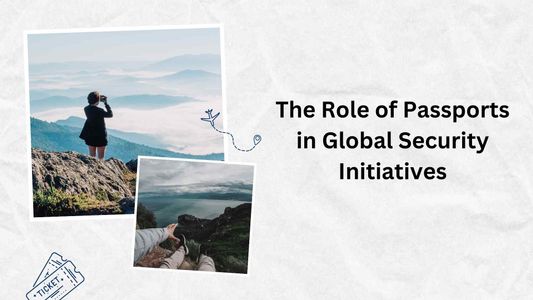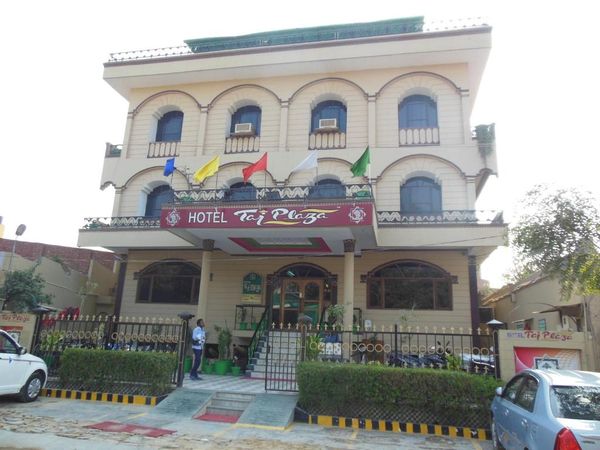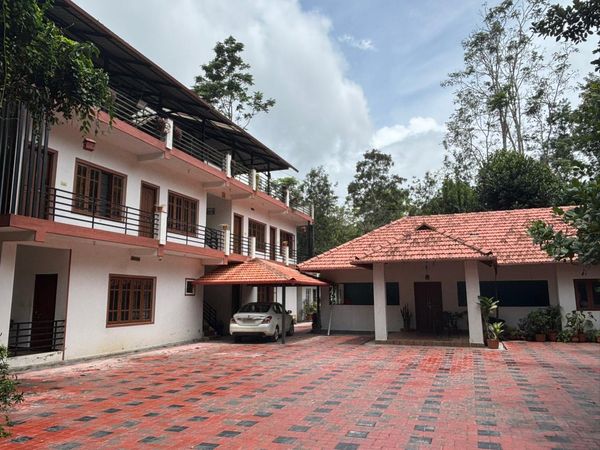The Role of Passports in Global Security Initiatives
 Udyam Kumar
18 Jan, 2025
9 mins read
59
Udyam Kumar
18 Jan, 2025
9 mins read
59

Apply for Passport refers to the process of requesting the issuance of a passport from the relevant government authority. A passport is an official travel document that serves as proof of identity and nationality, allowing its holder to travel internationally. Passports are essential tools in international travel, but they also play a critical role in global security. They serve as vital instruments for identity verification, controlling migration, and preventing cross-border criminal activities. Passports help governments manage the movement of people, ensuring that travelers are properly documented, identity-verified, and monitored for security risks. In addition to enabling lawful travel, passports are central to combatting terrorism, human trafficking, organized crime, and illegal immigration. This article explores how passports maintain global security through border control, international cooperation, and advanced technology.
1. Identity Verification and Security
The fundamental function of a passport is to verify a traveler’s identity. As globalization increases, the need for reliable systems to authenticate identities has become even more crucial. A passport contains essential personal information, such as a traveler’s name, nationality, date of birth, and a photograph. This information allows immigration authorities to verify that the person entering or leaving a country is who they claim to be.
Identity verification has become more secure with the rise of biometric passports, which incorporate technologies like fingerprint scanning, facial recognition, and iris scanning. These features make it more difficult for criminals to falsify or steal passports, thereby reducing fraud and identity theft. Matching physical characteristics to passport data also helps prevent impersonation, which is essential for security and managing international travel.
2. Preventing Terrorism and Cross-Border Security Threats
One of the key global security concerns is the movement of terrorists and individuals linked to criminal organizations. Passports are integral in identifying individuals who may pose a threat to national or international security. Governments use passport control systems to monitor individuals who may be on watchlists or have connections to terrorism or organized crime.
Passports help authorities track the movements of suspected terrorists. For example, many countries use systems like the INTERPOL database, where passport data is shared internationally, allowing countries to detect and prevent the entry of individuals associated with terrorist activities. If a person flagged as a security threat tries to cross a border, the border control authorities can identify them quickly and prevent entry.
3. Controlling Illegal Immigration and Migration
Managing migration is another area where passports are crucial. Countries have varying immigration laws, and passports are used to regulate the movement of people based on their nationality, visa status, and travel history. By requiring travelers to present their passports, countries can ensure that individuals entering their borders are doing so legally, and can check if they are entering under the right immigration status.
Passports also play a role in preventing illegal immigration. In many cases, individuals attempt to cross borders without proper documentation. Illegal migrants may use forged or stolen passports to enter countries. By enhancing passport security features, authorities are better able to detect fraudulent documents, making it harder for illegal migrants to cross borders undetected.
4. International Cooperation in Border Control
In today’s interconnected world, the ability to share information across borders is critical to maintaining security. Passports are central to this global cooperation. International organizations like INTERPOL, the International Civil Aviation Organization (ICAO), and the European Union (EU) work together to create consistent standards for passport issuance, design, and security. These shared standards make it easier for countries to exchange passport data and ensure that travelers are properly screened.
For example, the Schengen Information System (SIS) in the European Union allows member countries to share information about people who may be a threat to security or law enforcement. This collaborative approach helps prevent individuals from exploiting legal loopholes or bypassing border security measures. Additionally, countries in the United Nations (UN) and other global forums cooperate in sharing passport-related information to track criminal activities and maintain international security.
5. Countering Human Trafficking and Organized Crime
Human trafficking is a significant global problem, and passports are critical tools in identifying victims and perpetrators. Traffickers often use forged or stolen passports to move their victims across borders, exploiting them for forced labor or sexual exploitation. With improved passport control systems, authorities can better detect fraudulent documents used in trafficking schemes.
International cooperation and passport-sharing systems have helped prevent human trafficking by allowing authorities to track individuals traveling with suspicious or stolen passports. Many countries have adopted biometric passport systems to make it harder for traffickers to impersonate their victims and for victims to be moved across borders without detection. Enhanced security measures in passport issuance, such as verifying documents against criminal databases, also help ensure that passports are not being used for criminal activities.
6. Passport Control and Border Security Systems
Modern passport control systems have evolved significantly to meet the demands of global security. Traditional passport control methods involved manual checks, which could be slow and prone to human error. However, with the introduction of automated systems, border control has become more efficient and secure. Electronic gates (e-gates) and biometric scans allow for faster processing of travelers while maintaining high security.
These systems help reduce long waiting times at airports, which can otherwise lead to security risks in crowded environments. Automated passport control systems can quickly verify the identity of travelers by scanning biometric features, such as fingerprints or facial recognition. This streamlining of processes helps maintain security while ensuring that legitimate travelers are not unnecessarily delayed.
Also Read: How to Apply for a Child Passport
Conclusion
Passports are more than just travel documents—they are essential tools in maintaining global security. From identity verification to preventing illegal activities such as terrorism, human trafficking, and organized crime, passports play a central role in ensuring that international travel remains safe and secure. Through the use of biometric data, international cooperation, and advanced border security systems, passports help control migration, prevent security threats, and ensure that countries can effectively manage the flow of people across borders.
Written By:
Udyam Kumar



Hotels at your convenience
Now choose your stay according to your preference. From finding a place for your dream destination or a mere weekend getaway to business accommodations or brief stay, we have got you covered. Explore hotels as per your mood.


